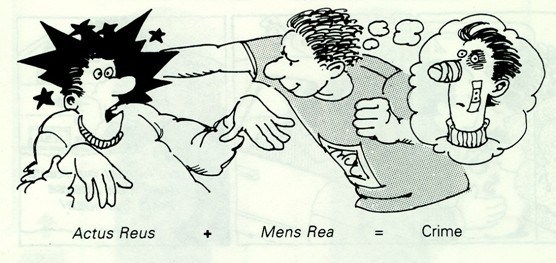According to common law in the US and most Commonwealth countries, mens rea is a Latin phrase meaning ‘guilty mind’. It is used to prove whether a person had the intention of committing a crime before perpetrating the act. For a person to be convicted of a particular crime, the prosecutor must prove whether or not that person took part in the criminal act with the intention of causing harm to another person or property.
The Writings of Edward Coke

As per Edward Coke, an English jurist who wrote about common law practices during the 17th century, “an act does not make a person guilty unless [their] mind is also guilty”. One may have committed a crime, but was the criminal deed done purposefully or accidentally. The prosecutor must prove the defendant’s guilt beyond reasonable doubt for the latter to be convicted.
Mens Rea in Murder Cases
The idea of ‘intent to commit the crime’ is mostly applied in murder cases. In this instance, it is important to determine the state of mind of the accused at the time of the killing. Lets take the example of a man defending himself against a robber or aggressor, and during the struggle, he accidentally stabs him/her with a knife, leading to that person’s death. Here, a lot of factors will have to be taken into consideration (like the number of stab wounds, if it is more than one, where the action took place, whether on the defendant’s property or not) to determine the mens rea. So, if the accused can prove that he was defending himself or herself, and that there was no intent of killing, then the judge or jury might exculpate the defendant.

What are the 4 Levels of Culpability to Prove Mens Rea?
- Intent: It involves attacking or assaulting someone with the goal of harming the victim and if there is a conscious desire to commit a dangerous act.
- Knowledge: The awareness that certain action can cause or result in endangering the life of another person.
- Recklessness: If someone knows the associated risk of an action and still does it. A good example would be drunk driving resulting in someone’s death.
- Negligence: When someone commits negligence, failing to meet reasonable standards of behavior. For instance, child negligence due to the caretaker failing to perform his or her duties.
Any crime that is tried in a court of law should have two very important factors: the Actus Reus (the actual criminal act) and the Mens Rea, which we have talked about in this blog.

